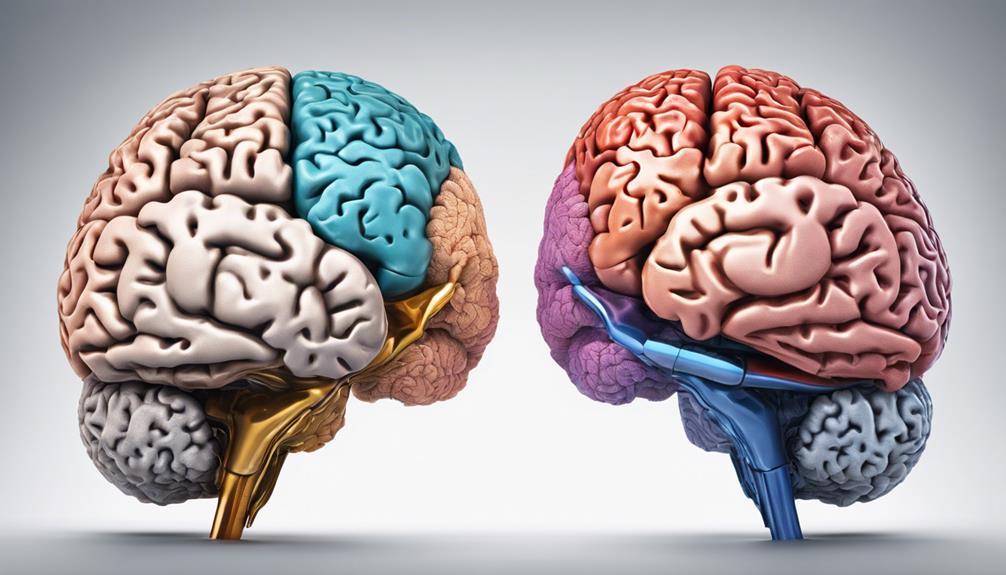Parkinson’s Disease, distinguished by its complex features and wide range of symptoms, is classified by a specific ICD code.
The rationale behind this specialized coding system is a topic that evokes curiosity and prompts exploration into the intricate web of factors that contribute to this unique classification.
Let's unravel the layers behind Parkinson's Disease having a singular ICD code and discover the significance it holds in the realm of medical diagnosis and treatment.
Key Takeaways
- Parkinson's unique ICD code (G20) ensures precise disease documentation in medical records.
- New codes capture diverse symptom variations, aiding tailored treatment strategies.
- Detailed classification allows for accurate tracking of disease progression and management.
- Standardized coding empowers healthcare professionals to deliver targeted care effectively.
Importance of Parkinson's Disease ICD Code

The significance of the unique ICD code for Parkinson's disease lies in its ability to provide specific and accurate identification for this condition within medical records. Without proper diagnosis codes, tracking and managing Parkinson's disease in patients would be challenging.
The use of ICD-10-CM Codes, particularly the code G20 designated for Parkinson's disease, ensures that healthcare providers can precisely document the presence of this condition in patients' records. This specificity is crucial for tailoring treatment plans to address the unique symptoms of Parkinson's disease, such as dyskinesia and motor fluctuations.
Additionally, accurate ICD coding for Parkinson's disease contributes to improved patient outcomes by enabling healthcare professionals to monitor disease progression effectively. Moreover, the detailed ICD coding enhances the quality of care provided to patients by facilitating proper payment accuracy and quality assessment within healthcare settings.
In essence, the meticulous use of ICD codes, especially for Parkinson's disease, plays a fundamental role in ensuring accurate diagnosis and management of this neurological condition.
Parkinson's Disease Classification Significance

Expanding from a single designated code, the classification significance of Parkinson's disease is being further refined with the introduction of five new codes to capture diverse symptom variations. These new codes are essential for accurately documenting Parkinson's disease without dyskinesia, enabling a more precise representation of the condition within the International Classification of Diseases (ICD) coding system. By incorporating these additional codes, healthcare professionals can better track disease progression and tailor treatment strategies to suit the specific symptoms experienced by patients with Parkinson's disease (PD).
The enhanced granularity provided by the new codes allows for a more nuanced understanding of the various manifestations and stages of PD. This specificity supports improved accuracy in diagnosis and management, ensuring that individuals receive appropriate care based on their unique symptom profile. As the coding system evolves to accommodate the complexities of Parkinson's disease, clinicians can more effectively address the diverse range of symptoms associated with the condition, ultimately enhancing patient outcomes and quality of life.
Understanding Parkinson's Disease Coding System

Understanding the Parkinson's Disease coding system involves deciphering the intricacies of its unique ICD code, G20, and the newly introduced codes aimed at capturing specific symptom variations like dyskinesia.
The expansion of the ICD-10-CM codes for Parkinson's disease is a significant step towards enhancing specificity in diagnosis and treatment planning. These additional codes not only allow for a more detailed classification of symptoms but also facilitate better monitoring of disease progression.
Accurate coding is essential for effectively managing Parkinson's disease, particularly in evaluating motor complications such as dyskinesia. The specificity provided by these codes enables healthcare professionals to tailor interventions to individual patient needs, leading to improved care outcomes.
Implications of Specific Parkinson's ICD Code

By incorporating specific Parkinson's ICD codes, healthcare professionals can accurately capture and differentiate motor complications such as dyskinesia and OFF episodes, allowing for tailored treatment plans and improved disease management. Specific Parkinson's ICD codes provide numerous implications for the diagnosis and management of Parkinson's disease:
- Accurate documentation of motor complications like dyskinesia and OFF episodes.
- Differentiation of individuals with varying Parkinson's disease symptoms for tailored treatment plans.
- Enhanced tracking of disease progression through improved specificity in coding.
- Supports better management strategies by facilitating precise diagnosis.
- Improves patient outcomes by accurately coding Parkinson's motor complications essential for proper assessment, treatment, and monitoring of the disease.
The use of specific ICD codes for Parkinson's enables healthcare providers to better understand the nuances of the disease presentation, leading to more personalized care and ultimately improved quality of life for patients.
Benefits of Unique Parkinson's ICD Code

The implementation of a unique Parkinson's ICD code offers healthcare professionals a robust framework for accurately documenting and managing motor complications associated with the disease. By having specific codes for symptoms like dyskinesia and OFF episodes, healthcare providers can precisely diagnose and track the progression of Parkinson's disease.
This specificity not only aids in understanding the disease's impact on patients but also enables the development of tailored treatment plans based on detailed information provided by the unique ICD code. Healthcare providers can use this code to communicate effectively with each other, enhancing collaboration in symptom management and interventions.
The benefits of a unique Parkinson's ICD code extend beyond documentation; it streamlines care by providing a standardized language for describing symptoms and disease progression. Ultimately, the utilization of this distinct code empowers healthcare professionals to deliver more targeted and effective care to individuals living with Parkinson's disease.
Frequently Asked Questions
What Makes Parkinson's Disease Unique?
Parkinson's disease is unique due to its distinct neurodegenerative nature affecting dopamine-producing neurons. Symptoms include tremors, stiffness, slow movement, impaired balance, with associated issues like dementia, depression, and sleep disturbances. Accurate classification with ICD codes is crucial.
Is Parkinsonism and Parkinson's Disease Coded to the Same Code?
Absolutely not! Parkinsonism and Parkinson's Disease each have their own distinct ICD codes. Parkinsonism mimics Parkinson's symptoms from external causes, while Parkinson's Disease is a specific neurodegenerative disorder requiring precise coding for accurate diagnosis and treatment.
What Are the ICD Codes for Parkinson's Disease?
The ICD-10 code for Parkinson's disease is G20. It's being expanded into 5 new codes for better specificity, addressing dyskinesia and symptom fluctuations. These changes aim to enhance diagnosis accuracy, treatment planning, and disease progression tracking.
What Is the New Code for Parkinson's Disease 2023?
The new 2023 ICD-10-CM codes for Parkinson's disease expand to five, differentiating based on dyskinesia and fluctuations. These codes enhance diagnosis specificity for tailored treatment and accurate progression tracking, supporting better outcomes for patients.
How Is the Unique ICD Code for Parkinson’s Related to Datscan Diagnosis?
The unique ICD code for Parkinson’s is crucial for medical billing and record-keeping. When a patient undergoes a Datscan for Parkinson’s diagnosis, the specific ICD code helps ensure accurate documentation of the procedure and its related costs. This aids in tracking the prevalence and treatment of Parkinson’s disease.
Conclusion
In conclusion, the intricate web of Parkinson's Disease ICD codes acts as a navigator through the labyrinth of symptoms and treatments, like a finely tuned GPS guiding us through the complexities of this neurodegenerative journey.
By providing a roadmap for healthcare providers to accurately document and manage the disease, these codes serve as a beacon of light in the darkness, illuminating the path towards better patient care and outcomes.








